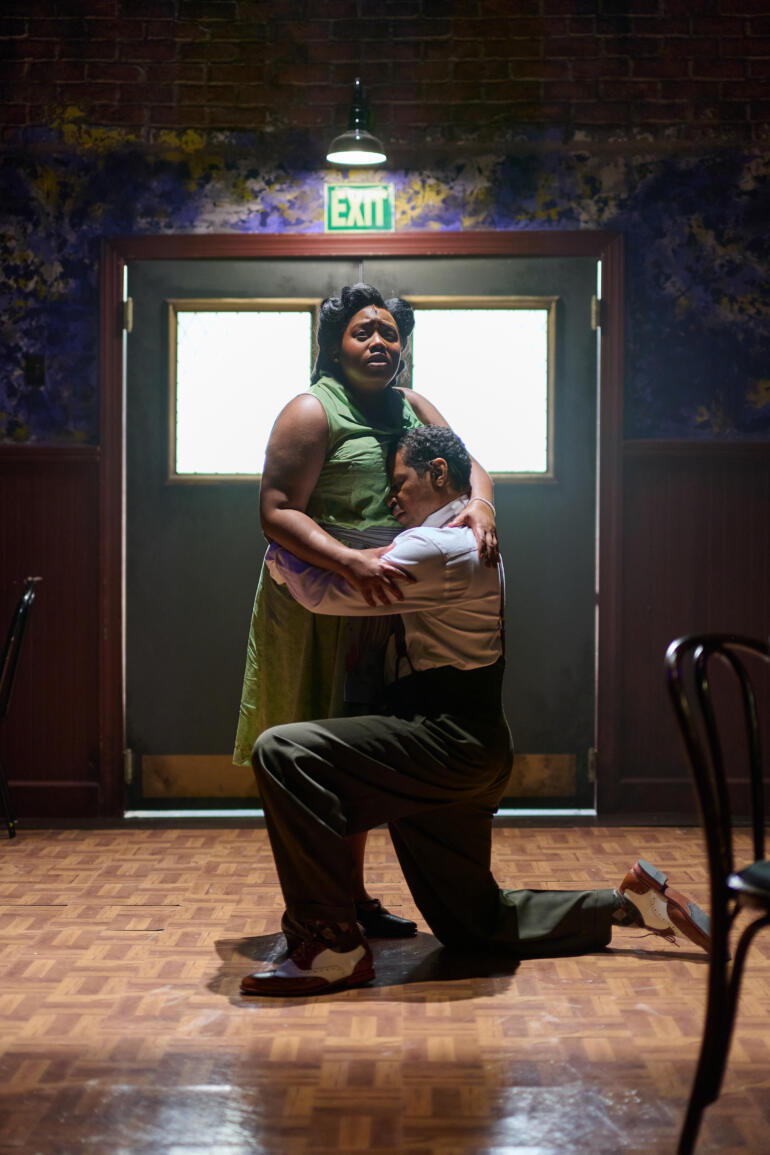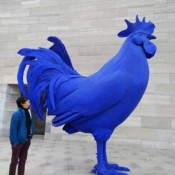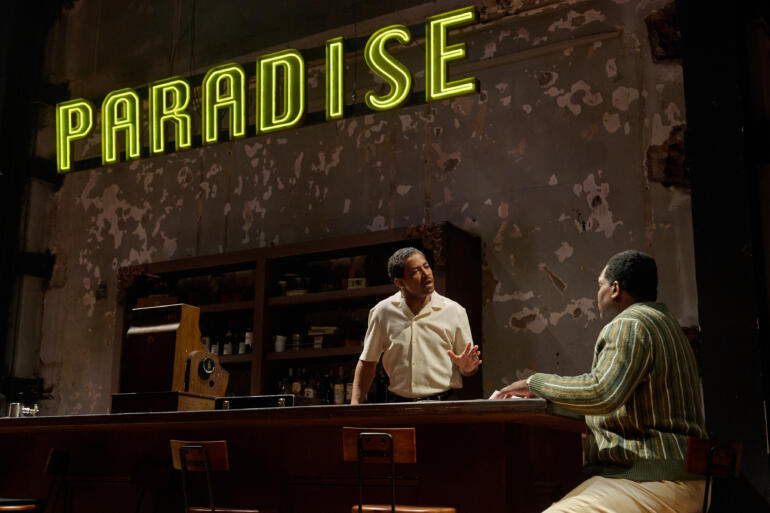Dominique Morriseau’s play “Paradise Blue” is a reckoning with racism in the United States and the injustice that African Americans have been grappling with since the birth of the nation.
Ahmad Coo is the Executive Producer for the Global Business show on CGTN America. His analysis represents his views alone.
It’s set in a world where gentrification and the erasure of history is unimpeded, where the United States government is actively trying to suppress people of color and ensure that white Americans are on top of the political and social totem pole.
The play happens in Black Bottom, a neighborhood in Detroit serving as a symbol of pride and a magnet for African American artists and culture. But it’s not Donald Trump’s America, though it does have a similar feel and trajectory. It’s 1949, and racial tensions are on the rise across the country.
“Paradise Blue” is part of a trilogy written by Morriseau, set in Detroit in different eras. In an interview, she said she came up with the series because of a ten play cycle that was written by another legendary African American playwright, August Wilson. She said she was struck by how Wilson’s plays honored and valued the people of Pittsburgh, and that she wanted to do the same for Detroit.
“We deserve love and full exploration of our humanity and the media wasn’t doing that,” Morriseau said, “so I decided that it had to come from those of us writers who are from the city and know its humanity well.”
Morriseau explores our common humanity with “Paradise Blue” and she does so with compassion. Her setting is less a backdrop than a heartbeat—a constant thrum beneath every line of dialogue, every moaning trumpet note, every silence. The play is at the precipice of Black Bottom’s demolition in the name of gentrification and unfolds in a time and place where jazz saturates the air like cigarette smoke and memory clings like sweat on a summer night. The Paradise, a little bar with a big soul, is the axis around which a handful of weary, diminished lives spin. It’s also a microcosm of Black Bottom itself—fragile, defiant, nearly out of time.

Kalen Robinson and Amari Cheatom in “Paradise Blue”. Photo by DJ Corey Photography.
Blue, the Paradise’s owner, is a man both magnetic and marooned. Played hauntingly by Amari Cheatom, we see a gifted trumpeter with a glint of genius and violence. Just like countless African Americans before him, he’s trapped between a wretched history he inherited and what he imagines is an escape from a cruel country. Morisseau imbues him with a jazz musician’s complexity: his mind a flurry of syncopated rhythms, his silences thick as molasses. He is tormented by the weight of fatherlessness, of racial inheritance, of being a Black man in a city whose affections are conditional and whose redevelopment is coded in loss.
The Paradise itself is faded, like the brushed brass of a horn that has seen too many hands. Directed masterfully by Raymond O. Caldwell, the set feels not merely designed but inhabited—lamps flicker like tired eyes, the bar bears the polish of nightly ghosts. Music seeps into every crevice: not as ornament but as oxygen. It is not incidental that the trumpet, in Blue’s hands, becomes both confession and exorcism. Because the play is immersive, the action happens around you which makes it more intimate and immediate. Emotions are more visceral being in such a setting.
The arrival of Silver—a mysterious, satin-voiced woman- serves as a fulcrum. Played with verve and intelligence by Anji White, she moves like someone with a train ticket always in her coat pocket, a woman who has known too many men like Blue but is not yet done testing them. Her presence upends the fragile ecology of the Paradise. She offers change, but also threat; opportunity, but at what cost? Silver’s language is velvet wrapped around steel. She doesn’t knock to enter—she slides in like a new key in an old lock.
But if Silver is the tempest, then Pumpkin is the uneasy calm before a storm. Played by Kalen Robinson with restraint, Pumpkin at first appears to be the kindest figure in the room—the caretaker, the helper, the woman who makes sandwiches and beds and lowers her voice when the men raise theirs. Yet Morisseau is far too astute to leave her there. Pumpkin’s gentleness is not weakness but unrecognized strength: the strength of one who listens, who endures, who waits. A woman whose dreams have been folded and tucked into the pages of books she reads in secret. Her relationship with Blue is defined by a kind of suffocating devotion—part love, part dependency, part historical echo of women whose labor in the home is mistaken for destiny.
As the play unfolds, Pumpkin begins to stretch—hesitantly, then defiantly—toward her own voice. She reads, writes and recites poetry. She questions. To emphasize her transformation, Morriseau has Pumpkin quote a poem titled “Heart of a Woman” written by Georgia Douglas Johnson- an African American Poet, Playwright and Columnist:
The heart of a woman goes forth with dawn,
As a lone bird, soft winging, so restlessly on,
Afar O’er life’s turrets and values does it roam
In the wake of those echoes the heart calls home
The heart of a woman falls back with the night,
And enters some alien cage in its plight,
And tries to forget it has dreamed of the stars
While it breaks, breaks, breaks on the sheltering bars.
Like Pumpkin, the woman speaking through the poem has dreams and hopes for a life worth living. It’s also a portrait of quiet resistance, of dreams that continue to flicker even behind “sheltering” bars. Just like Johnson, Pumpkin does not rage; she remembers. And in remembering, she reminds us of how much strength it takes just to feel.
Ultimately, Pumpkin exacts revenge. Her shocking actions at the end of the play are not triumphant, exactly, but necessary, and therefore revolutionary. In a world where women like her are often expected to endure in silence, Pumpkin’s quietly building fury is its own kind of aria.
Like Pumpkin, Morisseau’s other characters who populate “Paradise Blue” aren’t symbols—they breathe, ache, flirt, flinch, and ultimately fail. Pumpkin, Corn (Marty Austin Lamar), P-Sam (Ro Boddie)—each one revolves around Blue’s gravitational pull, and yet each begins, in subtle ways, to break away from it. The chemistry among them plays like jazz—intimate, volatile, improvisational. They talk in the clipped poetics of those who’ve worked too many shifts and seen too many funerals for family and friends. There’s an understanding between them, born not of agreement but of proximity. In Black Bottom, survival is communal, even when the wounds are individual.
Morisseau also writes like someone with an ear pressed to the floorboards of the past. She catches the reverberations of displacement, the hush of untold histories. Her language, while grounded in the vernacular, is often radiant and shot through with metaphor, carried along on lyrical wings. But there is restraint, too. She resists the temptation to moralize. There are no heroes here, only people trying, failing, and trying again to hold onto something before it’s gone.
This tragedy surrounding the disappearance of a once proud community in Black Bottom is slow and suffocating, but it burns. Its fire is grief, yes, but also fury at the death of a cultural touchstone like the Paradise. In a country that specializes in erasure, the play is a refusal to forget. It’s a tortured shout across history, asking not just what we’ve lost, but who keeps gaining from our forgetting. No bulldozers arrive onstage, but they are heard in every clinking glass, in every argument about the future, in every moment of unspoken dread.
What “Paradise Blue” ultimately mourns is not just the physical loss of a neighborhood, but the psychic violence of dislocation and the forced forgetting. In this way, the play is as much about today as it is about 1949. Detroit may be the setting, but the real terrain is memory—and who gets to keep it.
“Paradise Blue” may have been set in the distant past but it is not nostalgia. It’s not a pretty postcard of what was. It is angry, and rightfully so. It demands that we acknowledge what was lost—and who was responsible. It reminds us that neighborhoods like Black Bottom didn’t disappear. They were wiped out. There’s blood in the mortar of those new high-rises. There’s silence in the concrete where trumpets once played.
The play’s end arrives not with the swell of resolution but with an explosion of violence. The music continues to haunt, but it plays now for the vanished. The Paradise may fall, but what Morisseau salvages—in voice, in gesture, in defiant melody—is a testament to what has always lived between the lines of Black history: beauty, resistance, and the complicated music of belonging.
Paradise Blue is playing at Washington D.C.’s Studio Theatre through July 6, 2025.
 CGTN America
CGTN America


